Latest News
Afghan Lawmakers Harshly React Against MP Fatima Aziz Disclosure
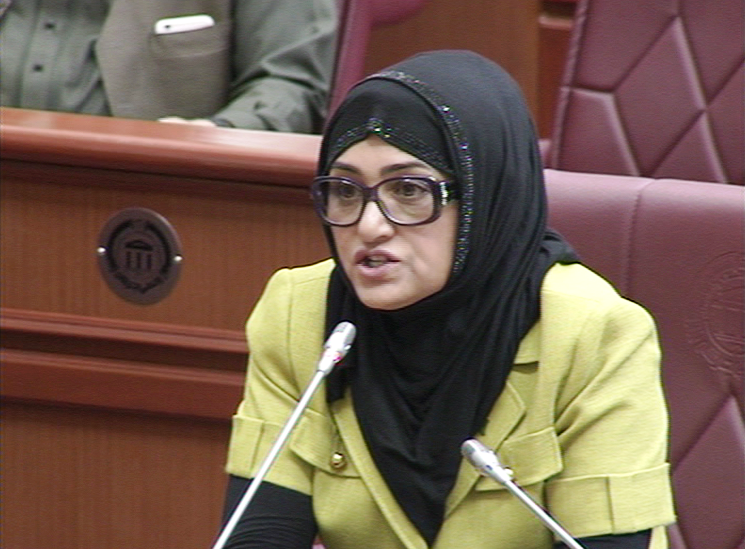
A number of Parliament Members accused other lawmakers of interfering in appointment and dismissal of some ministries’ employees.
At Wednesday’s session of The Lower House of Parliament, Fatima Aziz, Representative of Kunduz said, “A number of lawmakers who are not present in Parliament are busy with [the] appointment and dismissal of individuals in ministries. This is a serious problem and [has] caused serious problem in our society.”
However, Fatima Aziz’s remarks elicited harsh reactions of other Parliament Members.
A Member of Parliament, Delawar Emaq said, “Name those lawmakers! If you cannot mention their name, why you are saying these false statements?”
Bashar Dost, Representative of Kabul said, “She is making our names bad, according to the law we should introduce her to the Attorney General.”
The Deputy Speaker of Parliament also warned against expressing such remarks at the session.
Nazir Ahmad Azizi, the Second Deputy Speaker of Parliament said, “Lawmakers have always named other lawmakers. The Parliament Members are dignified and serve the people. If it’s been said again, we’ll get anyone out of the session.”
Other representatives at the Lower House, meanwhile confirmed the monopoly of power in ARG, according to a statement issued by the Coalition for the Salvation of Afghanistan.

Latest News
IEA seeks no enmity or war with anyone: Deputy PM Kabir
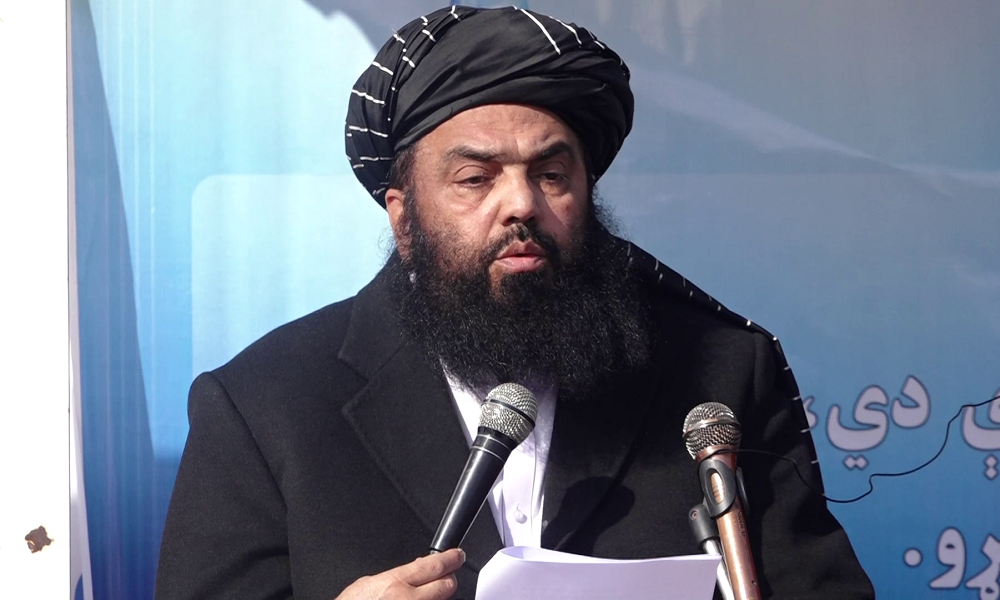
The Political Deputy of Prime Minister, Mawlawi Abdul Kabir, says protecting and defending Afghanistan and its people is the government's responsibility and that the Islamic Emirate seeks neither enmity nor war with anyone, but instead views stability in Afghanistan as beneficial to both the region and the world.
Speaking at the inauguration of Shah wa Arus dam in Kabul on Tuesday, Kabir stated that no external pressure could compel anyone to achieve their goals in Afghanistan.
"The Islamic Emirate is currently progressing well on both the battlefield and in politics. We do not want war or enmity with anyone, but we are responsible for the protection and defense of our people and our land,” said Kabir.
He emphasized the IEA seeks peace in the region and the world, and that countries should not blame IEA for their internal political failures to disrupt regional order.
He also stated the IEA will not accept any obstacles in the path of development and self-sufficiency and will continue its efforts, even though some countries may be unable to tolerate Afghanistan's progress and development.
Abdul Kabir highlighted that IEA aims to ensure regional stability through the implementation of large-scale regional projects.
Latest News
South Korea pledges $5 million to support vulnerable families in Afghanistan

The United Nations World Food Programme (WFP) in Afghanistan has announced the receipt of a $5 million donation from the Ministry of Foreign Affairs of the Republic of Korea.
This contribution will enable WFP to provide urgent food assistance to vulnerable families, support maternal nutrition, supply daily school snacks for children, and bolster livelihoods and resilience activities in rural communities.
The donation arrives at a critical juncture in Afghanistan, where one-third of the population—around 15 million people—are projected to face severe food insecurity during the challenging winter months.
“Winter in Afghanistan is unforgiving. With no work and no food, families face the impossible choice between heating their homes or feeding their children,” said Moon Sung-hwan, Chargé d'affaires of the Republic of Korea to Afghanistan. “Currently, one-third of Afghanistan's population—nearly 15 million people—are going hungry and need food assistance to survive. The Republic of Korea stands in solidarity with the people of Afghanistan and remains committed to supporting families most in need.”
The $5 million contribution will enable WFP to assist nearly 37,000 food-insecure individuals with 2,000 metric tons of fortified wheat flour, vegetable oil, pulses, and salt. Over 46,000 malnourished mothers will receive specialized nutritious food to prevent malnutrition, and nearly 47,000 primary school children will benefit from daily, nutritious snacks as part of WFP’s school feeding programme. Additionally, the funding will support over 860 families in activities that aim to improve livelihoods and enhance community resilience against climate-related shocks.
“Afghanistan remains one of the world’s most severe hunger hotspots, and the outlook for many families is grim,” said Hsiao-Wei Lee, WFP Country Director in Afghanistan. “The rising rates of malnutrition present a dire situation, with nearly 3.5 million children and 1.2 million mothers expected to become malnourished in the coming year. It is thanks to the generous investments of partners like the Republic of Korea that we are able to reach women and children with critical assistance.”
The Republic of Korea has been a consistent supporter of WFP’s efforts in Afghanistan, contributing a total of $36 million over the past five years. This places Korea among WFP’s top ten donors for Afghanistan, reinforcing its strong commitment to humanitarian assistance in the country.
As Afghanistan grapples with widespread food insecurity, the ongoing support from international partners such as the Republic of Korea plays a crucial role in providing life-saving aid to those in desperate need.
Latest News
Shah wa Arus dam inaugurated in Kabul
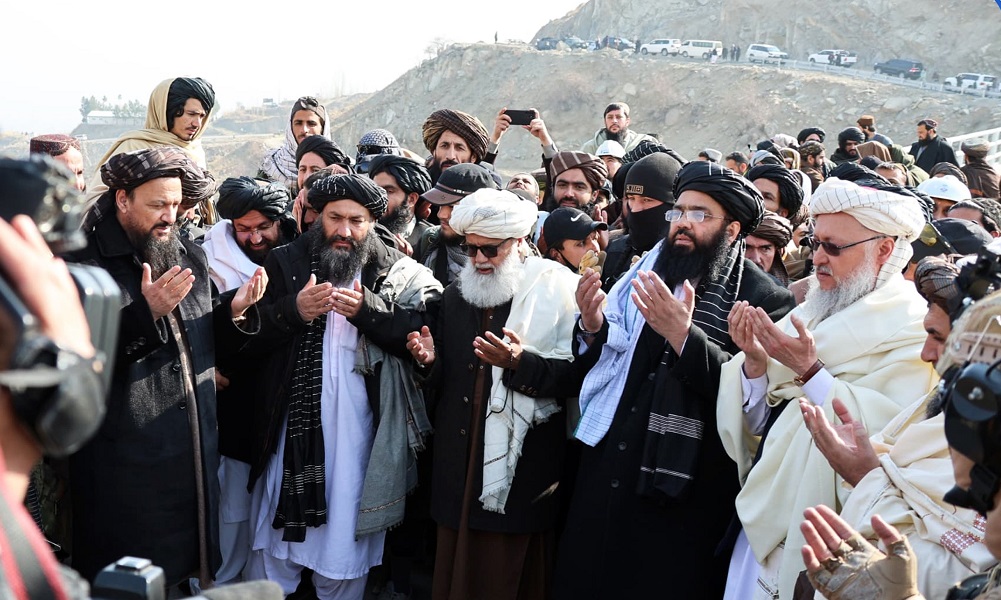
The Ministry of Energy and Water announced on Tuesday that the Shah wa Arus dam project in Kabul's Shakardara district has officially been inaugurated.
The ceremony, attended by senior officials from the Islamic Emirate of Afghanistan (IEA), marks a significant milestone in the country’s efforts to improve water management and provide sustainable resources for its citizens.
The dam, valued at approximately $53 million, was constructed by the Ministry of Energy and Water with the dual objectives of enhancing water management and supplying drinking water to Kabul's residents. The project is seen as a critical step in addressing the capital's water scarcity challenges.
Several high-ranking IEA officials attended the inauguration ceremony, including Mawlawi Abdul Kabir, Deputy Prime Minister for Political Affairs; Mullah Abdul Ghani Baradar, Deputy Prime Minister for Economic Affairs; Abdul Salam Hanafi, Deputy Prime Minister for Administrative Affairs; and Abdul Latif Mansour, Acting Minister of Energy and Water.
Baradar emphasized the critical importance of water management, highlighting that it is a key priority for the Islamic Emirate. He stressed that the effective management of water resources and the development of energy infrastructure are crucial for the country’s future prosperity.
In his speech, Baradar underscored the growing value of water as a key economic asset in global politics, stating, "Water is increasingly recognized as a vital economic factor in international relations. In some countries, its value exceeds that of oil and precious minerals."
He also acknowledged Afghanistan's challenges due to years of conflict and limited investment in water infrastructure. "Unfortunately, due to the wars and various internal and external factors, Afghanistan has not made the necessary investments in managing this precious resource," Baradar explained. "As a result, seasonal rains and climate change have led to frequent flooding, causing significant damage and loss of life."
Mawlawi Abdul Kabir described the completion of the Shah wa Arus dam as a clear demonstration of the Islamic Emirate’s commitment to the nation’s development. He called the project a symbol of the IEA's determination to promote prosperity and improve the lives of Afghan citizens.
Abdul Salam Hanafi also praised the dam’s completion, calling it a significant step forward in the country’s water management efforts. "This project reflects our ongoing commitment to ensuring the sustainable use of water resources for the benefit of the people," he said.
Abdul Latif Mansour, the Acting Minister of Energy and Water, further highlighted the broader vision for Afghanistan’s water and energy sectors. He noted that the leadership of the IEA has already approved plans for four additional major dam projects, including the Lalander Shatoot Dam, which is set to begin construction next year.
The Shah wa Arus dam stands at a height of 77 meters and has the capacity to regulate 30 million cubic meters of water annually. This will allow for the irrigation of 2,700 to 3,500 hectares of agricultural land and provide 5 million cubic meters of drinking water for Kabul. The dam is also capable of generating 1.2 megawatts of electricity, further contributing to Afghanistan's energy needs.
This project is expected to have a far-reaching impact on both the environment and the livelihoods of thousands of Afghan families, particularly in the areas of agriculture and clean water access.
-
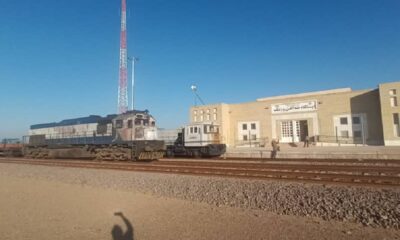
 Business5 days ago
Business5 days agoChina’s first railway consignment arrives in Afghanistan via Iran
-
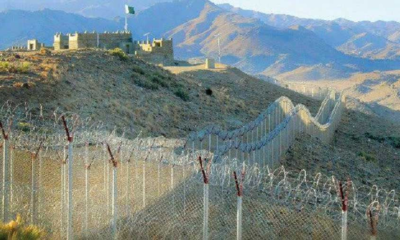
 Latest News4 days ago
Latest News4 days agoAfghanistan carries out retaliatory attack against Pakistan
-
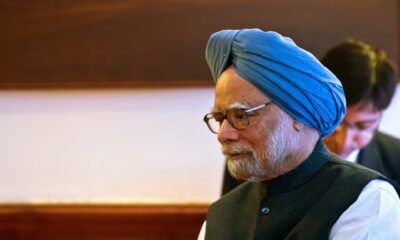
 Regional5 days ago
Regional5 days agoManmohan Singh, India’s reluctant prime minister, dies aged 92
-
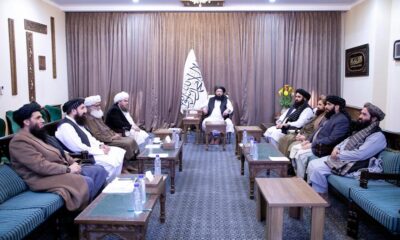
 Latest News4 days ago
Latest News4 days agoAfghanistan as independent country has the right to self-defense: Arg
-
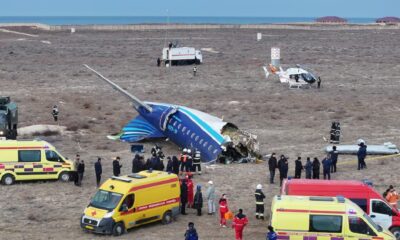
 World5 days ago
World5 days agoRussian air-defense system downed Azerbaijan plane: Reuters
-
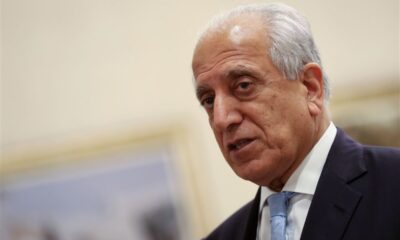
 Latest News4 days ago
Latest News4 days agoSyria is ‘more strategically important’ to US than Afghanistan: Khalilzad
-
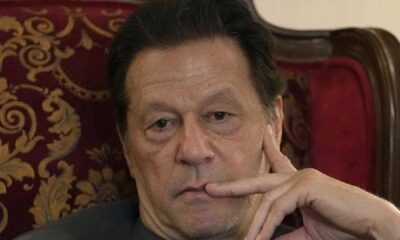
 Latest News4 days ago
Latest News4 days agoPakistan’s forced repatriation of Afghan refugees has fueled hatred: Imran Khan
-

 World4 days ago
World4 days agoNorth Korean troops experience mass casualties on Ukraine front lines, White House says

















